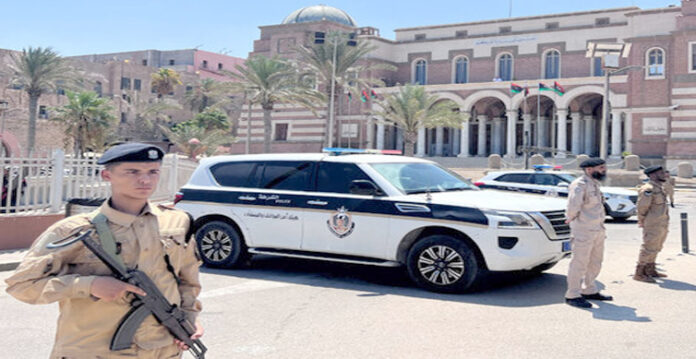The United Nations Support Mission in Libya (UNSMIL) has mediated crucial talks in Tripoli to address a deepening central bank crisis that has led to a blockade of oil production, jeopardizing the stability of the North African energy exporter.
UNSMIL announced that the discussions between rival factions resulted in a “significant” understanding. Both parties agreed to present a draft agreement to their respective legislative bodies for review, with the objective of finalizing and signing the agreement by Tuesday.
The crisis erupted last month when Western factions attempted to oust Sadiq Al-Kabir, the longstanding governor of Libya’s central bank (CBL), and replace him with a rival board. This move provoked Eastern factions, leading them to shut down all oil production in protest. The blockade has severely impacted Libya’s economy, as the CBL is the sole repository for oil revenues and plays a critical role in paying state salaries and managing financial transactions.
The ongoing standoff has had significant repercussions on the oil market. Oil prices edged higher on Monday, recovering some of the previous week’s losses as Libyan oil exports remained halted and concerns about increased OPEC+ production from October eased.
The discussions, which extended from morning until late into the night, included representatives from Libya’s House of Representatives and the High Council of State, as well as the Presidential Council. The parties involved in the talks are working to resolve the impasse and restore stability to Libya’s crucial oil sector.
If the central bank crisis continues, Libya faces severe economic repercussions, including halted state salaries, disrupted bank transfers, and impeded import activities. The blockade by Eastern factions, led by the House of Representatives (HoR) under Speaker Aguila Saleh and the Libyan National Army (LNA) commanded by Khalifa Haftar, has already led to significant production declines. The National Oil Corporation (NOC) reported that oil production plummeted to just over 591,000 barrels per day (bpd) by August 28, down from nearly 959,000 bpd on August 26, representing losses exceeding $120 million over those three days. Production had been around 1.28 million bpd on July 20.
The crisis risks undoing a four-year period of relative stability in Libya, which has been divided between Eastern and Western factions supported by Russia and Turkiye, respectively. The ongoing conflict between these factions has significantly disrupted governmental functions, although efforts by the CBL and NOC to maintain some operations have provided a semblance of continuity.
As the situation evolves, the international community watches closely, hoping that the ongoing negotiations will bring an end to the blockade and restore Libya’s oil production and economic stability.
(This story is sourced from a third-party syndicated feed. Raavi Media takes no responsibility or liability of any nature. Raavi Media management/ythisnews.com can alter or delete the content without notice for any reason.)


